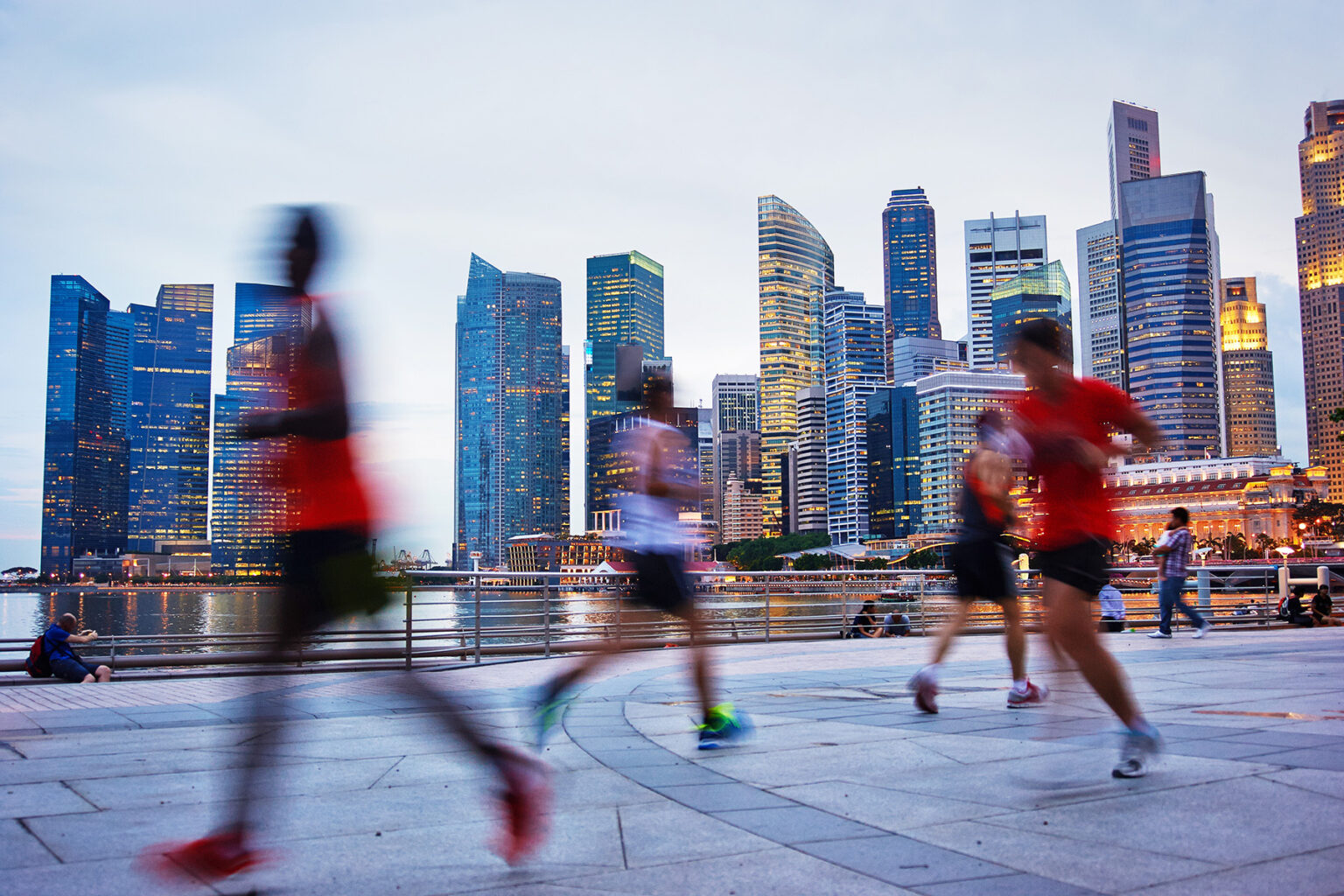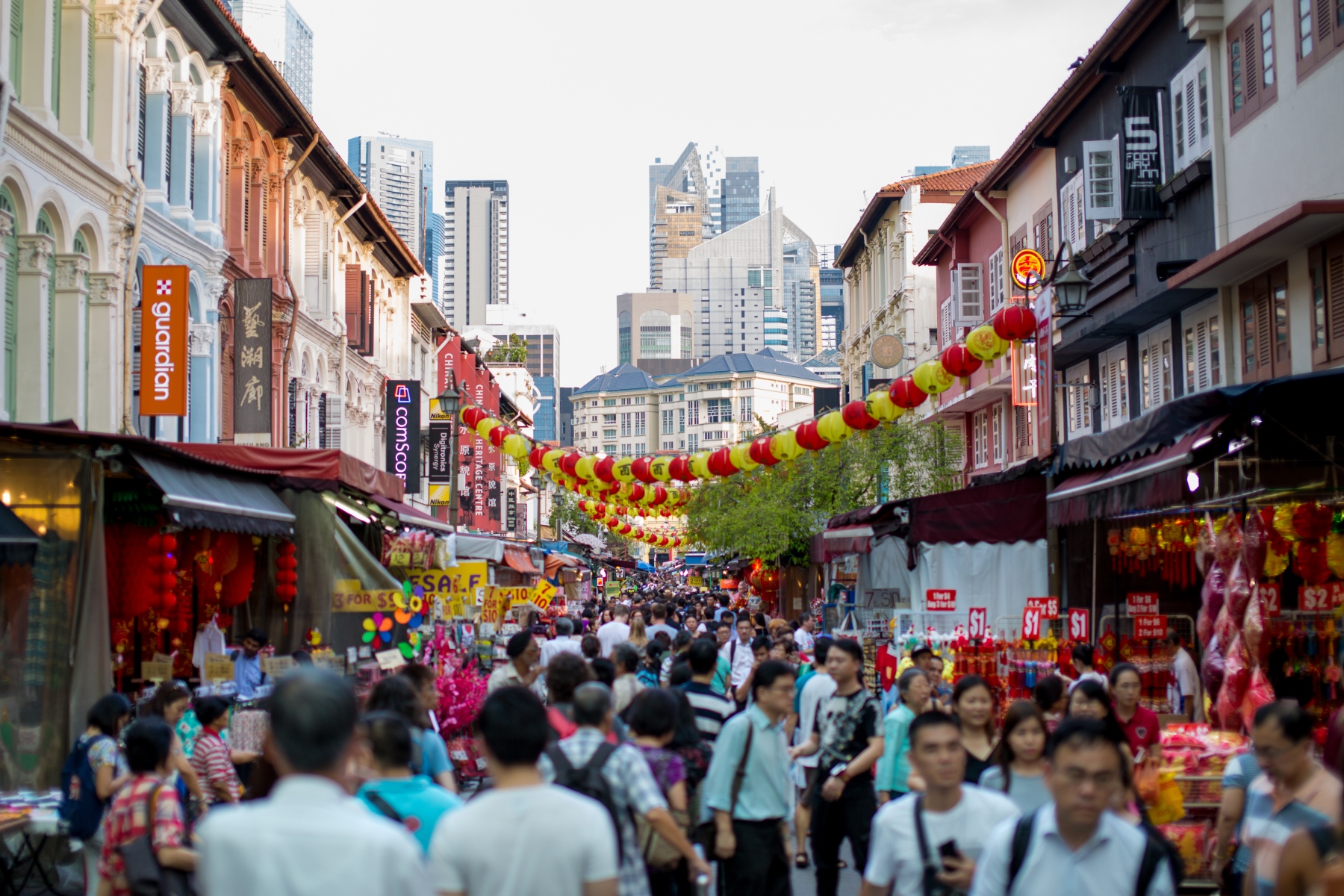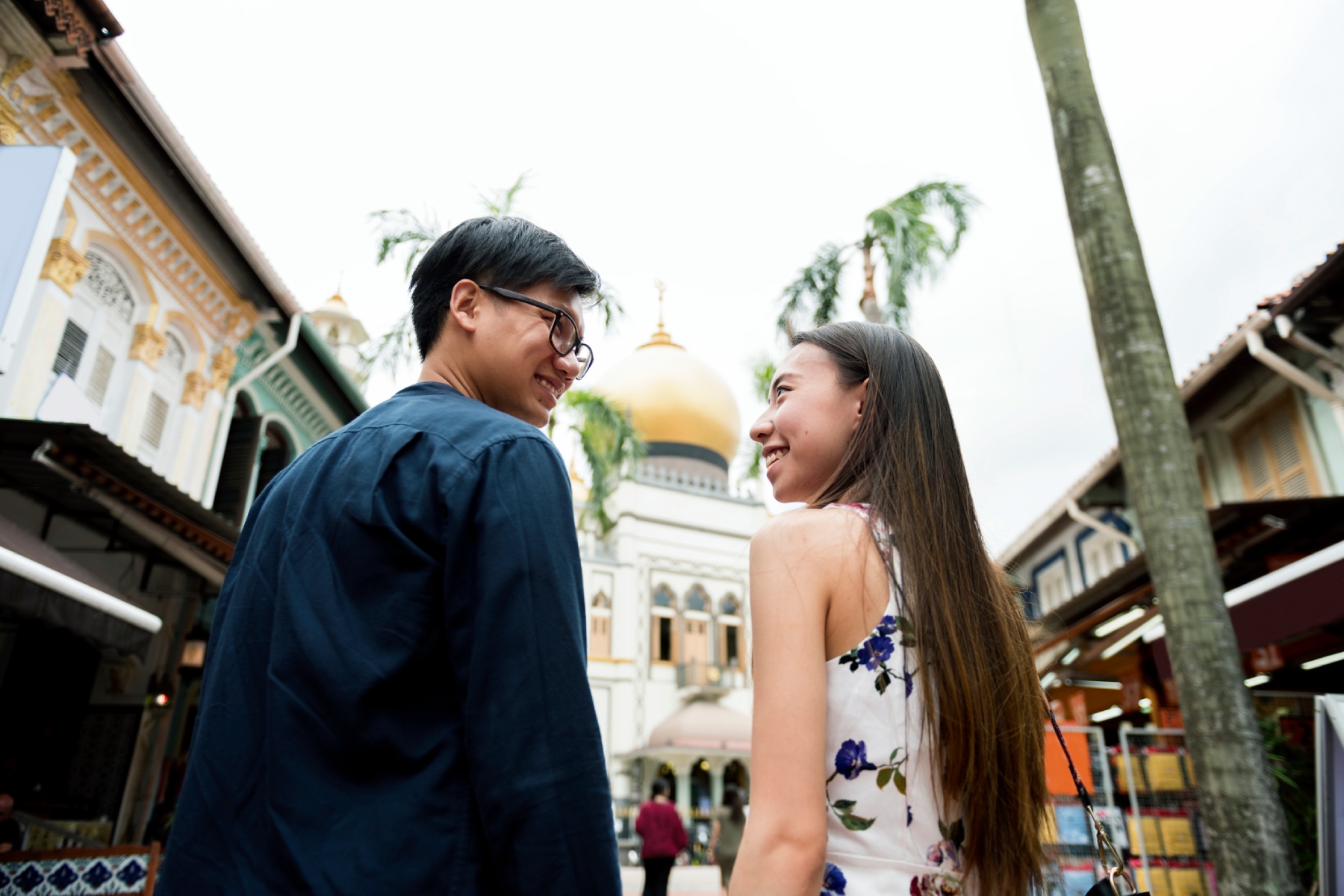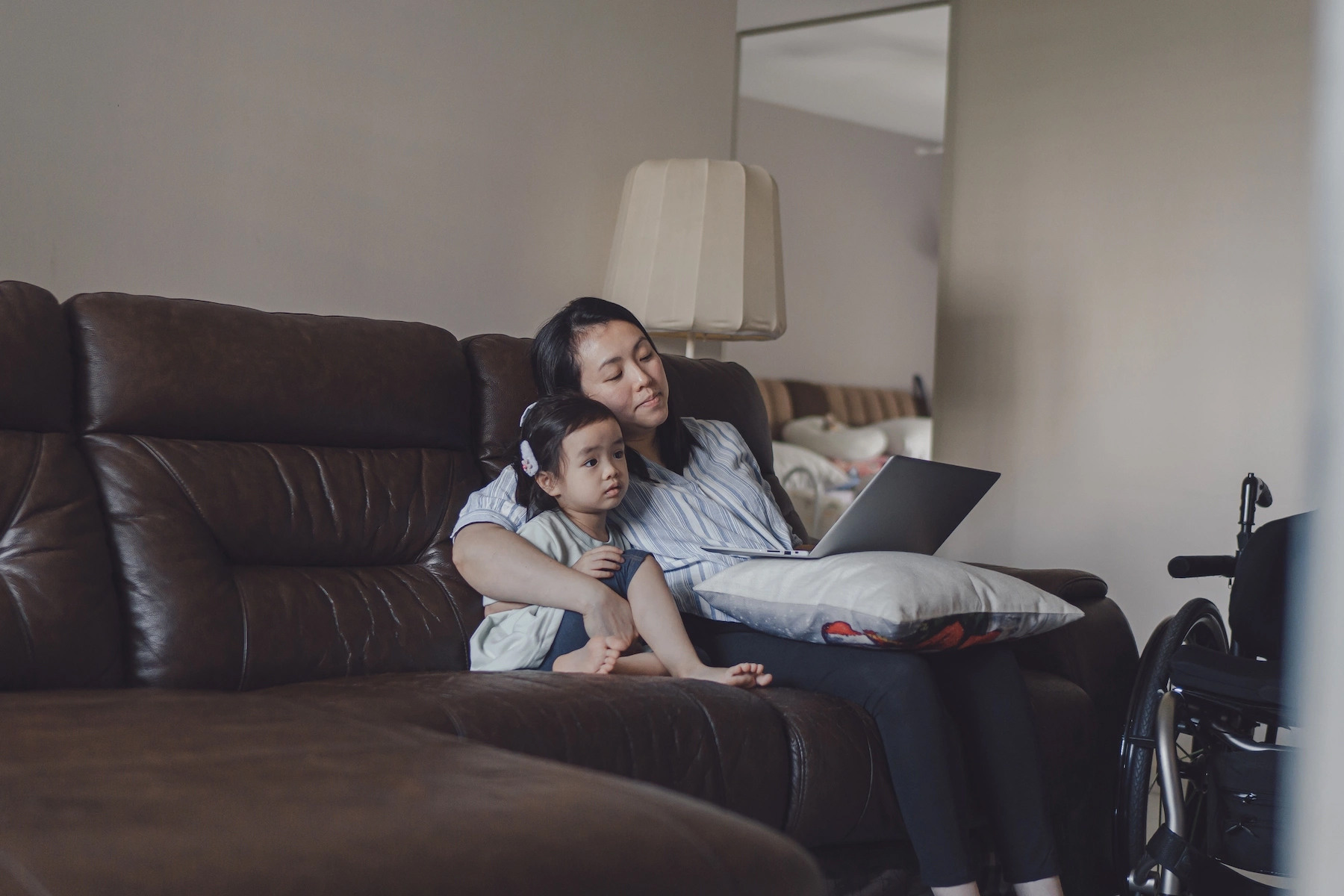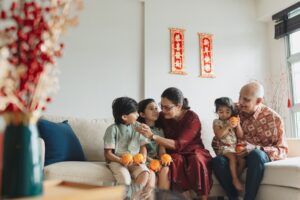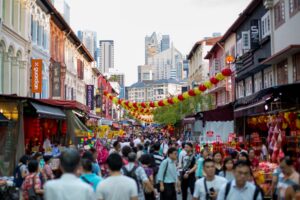Modern, efficient, well-to-do, and cosmopolitan. Singapore has all the trappings of the perfect expat sanctuary. But scratch beneath the surface, and you’ll find a rich culture reflecting the island’s diverse ethnic mix.
Learn why living as an expat in Singapore is so memorable and enriching by exploring it from an insider’s point of view with these topics:
- 1. What’s it really like to live in Singapore?
- 2. Is the cost of living in Singapore affordable?
- 3. Is it easy to find love in Singapore?
- 4. What is Singapore’s work culture like?
- 5. Can I afford housing in Singapore?
- 6. What’s it like being a woman in Singapore?
- 7. Is Singapore a good place to raise children?
- 8. Does Singapore have a good healthcare system?
- 9. What is the worst about life in Singapore?
- 10. What is the best about Singaporean life?
Sirelo
It’s no secret that moving abroad can be stressful. Sirelo’s team of removal advisers is here to help. They provide five free quotes from international shipping companies so you can find the best options at the best prices. Take the stress out of your relocation to Singapore with Sirelo.rn
1. What’s it really like to live in Singapore?
Singapore has been welcoming expats to its shores for decades. Once little more than a rocky outpost off the southern tip of the Malay Peninsula, it’s been dramatically transformed.
In just half a century, it’s become one of the world’s leading financial and trade centers, an international transport hub, and one of Asia’s most dynamic economies. And with that, residents enjoy some of the planet’s highest living standards.
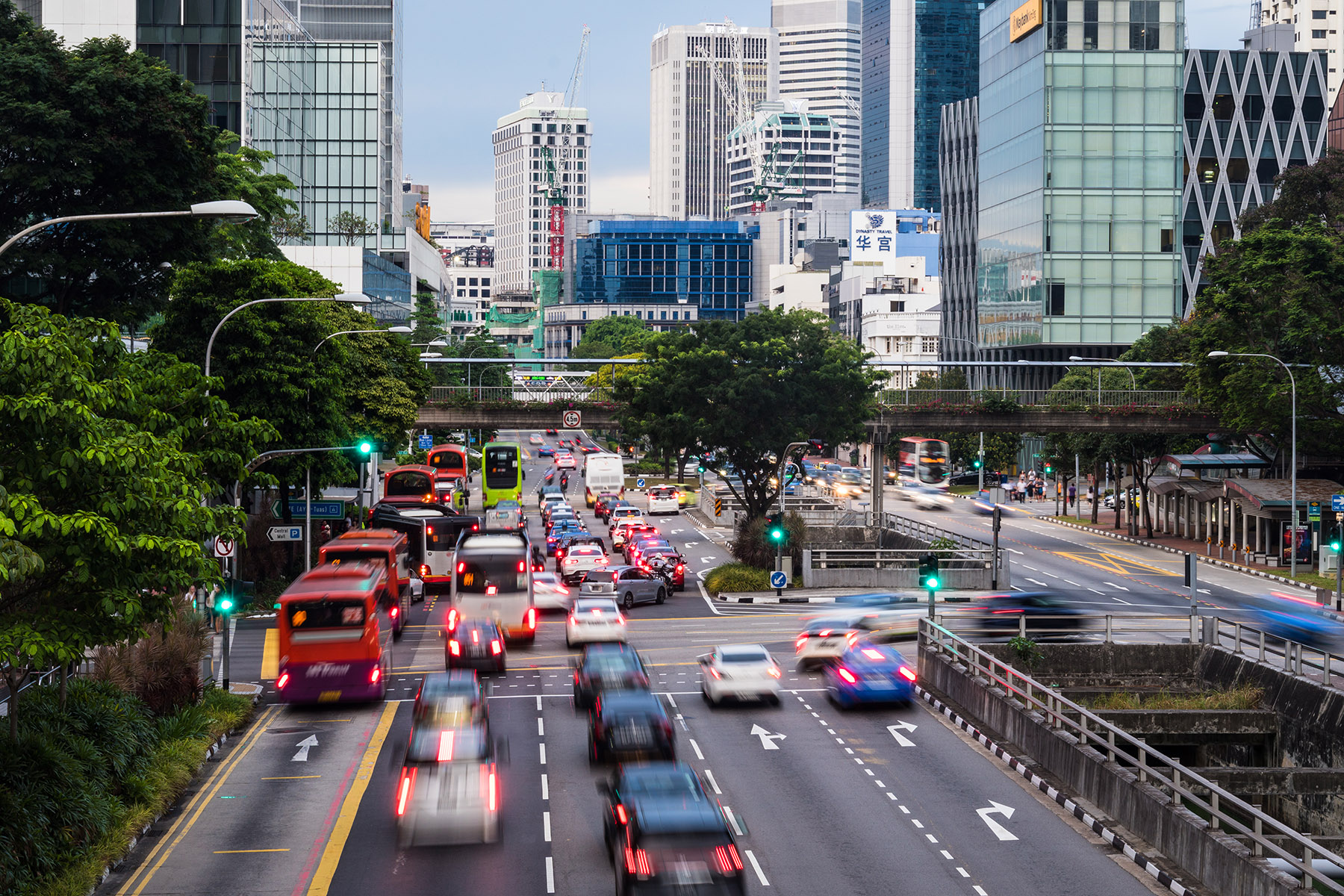
Local culture tends to place a high value on academic and career achievement. As such, schools and workplaces are highly competitive. Don’t be surprised at how open people are about materialism, the attainment of wealth, and the concept of kiasu (literally ‘being nosy’). In Singapore, they say you’ve only made it once you have the ’five Cs’ – cash, car, credit card, condo, and country club membership.
Nonetheless, look beyond the clichés and see Singapore of 2024 for what it really is. You’ll discover a city-state comfortable in its own skin, welcoming to people from around the world, and a fantastic place to work, play, and raise a family.
Of course, there are caveats. Your experience of living as an expat in Singapore is largely what you make it. Want to hang out only with fellow expats? It is a trap that many fall into in a city where around a third of the population is foreign. There are international cliques and bubbles everywhere you look.
Conversely, integrating into Singapore society is no cakewalk. For all its comfort and non-existent language barriers, some parts of the culture can be conservative, and its people reserved. Therefore, invites into a local’s home is a rare treat, and – like many metropolises – free-flowing chatter with strangers on the MRT is non-existent. Even learning a few Singlish phrases – the informal, colloquial English variation – won’t earn you more kudos.
Still, take advantage of the Lion City’s short distances and fantastic public transport networks to get out and explore.
Expats and locals may work, live, and play side-by-side in this densely populated city, but subtle cultural hurdles take time to overcome. Make the effort, however, and you’ll gain a rich, nuanced perspective of Singapore life, including its diverse foods and many festivals.
That all said, Singapore is a sociable place. For instance, you can join one of the hundreds of clubs, associations, and societies dotted across the island, catering to almost any interest or whim. Sign up with a local five-a-side soccer club, play tennis at your condo, do yoga in the park, or hook up with a weekend hiking group. Sports are a great way to meet new people and settle healthily into Singapore life.
2. Is the cost of living in Singapore affordable?
Everything is relative when it comes to assessing the cost of living in Singapore. Pull in a five-figure monthly salary, and that S$500 bottle of French red wine might be an affordable luxury. Those with more modest means cut their cloth accordingly. And that’s totally possible.
Singapore regularly tops international cost of living surveys. These consider the typical needs and wants of expats in that city. Housing, transport, utilities, food, home supplies, personal care, clothing, recreation, and entertainment are just some of the metrics.
Housing is the most significant budget drain for an expat in Singapore. On average, for an apartment, you need to allocate between S$3,000 and S$5,000 rent per month, plus utilities.

Local expert
Gayatri Bhaumik
Insider tip
Think S$10,000 or more for a classic black-and-white house in a chi-chi neighborhood.
When it comes to groceries, supermarkets like Cold Storage, Marketplace, and Jason’s all stock expat goodies from the US, Australia, New Zealand, Europe, the UK, Japan, and Korea. However, prepare for price shock. For example, 250g of decent cheddar cheese will cost you around S$15, and you’ll easily pay around $1,500 or more for a modest monthly shop for a family of four.
Of course, a Singaporean grocery shop can be kinder to the wallet and more sustainable. Head to a wet market, community garden, or neighborhood grocery stores in areas like Little India, Tiong Bahru, Holland Village and throughout the heartlands. Here, you can pick up fresh meat, seafood, vegetables, spices, and other staples that are around 30% cheaper than supermarkets.
Or do as many Singaporeans do and enjoy the delicious and affordable street food. Dining is a local obsession, and everyone has an opinion on their favorite kway teow stall.
Eating out in a local food center is often cheaper than cooking at home, which may explain why kitchens in most Singapore homes are tiny. For only S$5, you can fill your stomach with a plate of rice with meat or vegetables. For S$10, you can wash it down with a bottle of local beer.

Local writer and expert
Mark Lazell
Do you want to know a secret? The best one is at the Zion Road Hawker Center just off River Valley Road; look for the long line.
Transport also exists at both ends of the cost spectrum. A car is considered a luxury and will undoubtedly be one of your greatest expenses. The expenses of owning a vehicle are eye-watering. For example, in February 2024, a small family car’s Certificate of Ownership (CoE) costs around S$80,000, and fuel is about S$2.80 per liter.
You can avoid the hefty fees and parking hassles of owning a car by taking public transport. Pretty much every nook and cranny of the island is covered; hop on the squeaky clean, heavily air-conditioned MRT, or get your bearings on one of the buses that crisscross the country. You can also buy an EZ-Link card and tap and go on the MRT or bus.
A typical fare on the MRT from one end of Singapore to the other will be about S$3.50. So, you should set aside around S$200 per month for transport in total.
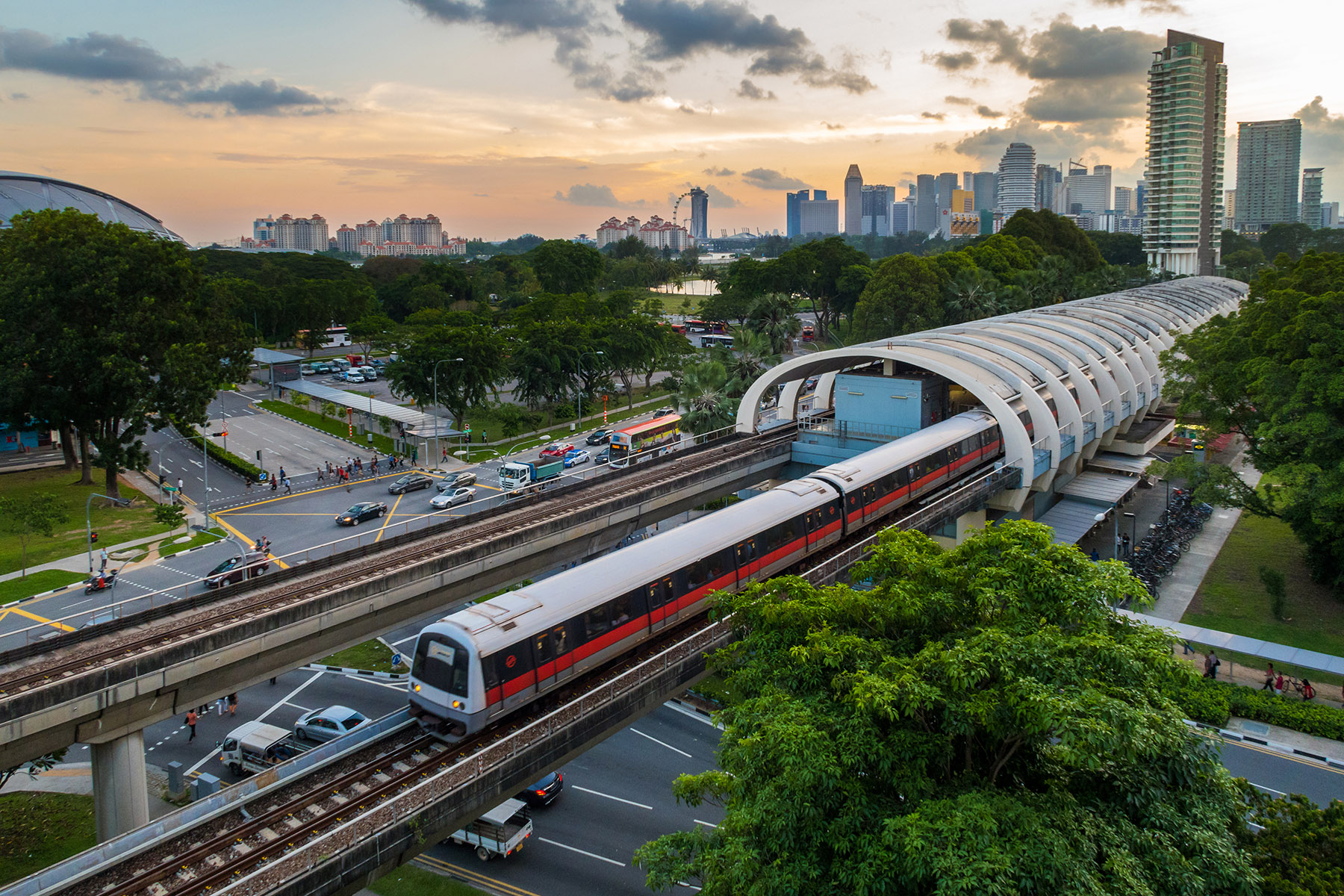
Singapore’s minimum wage is around S$1,600 per month, which only applies to locals. For an expat to qualify for the main work and residence visa (i.e., an Employment Pass), the Ministry of Manpower (MOM) stipulates a minimum salary of S$5,000 per month.
This threshold rises with age. If you’re over 45, you’ll need to be on S$10,500. Remember, as an international resident, you are not eligible for financial support or social security from the government if you run into difficulty. Your embassy may be your only option.
3. Is it easy to find love in Singapore?
It’s common enough to observe dating and relationships between expats and locals, and no one will really raise an eyebrow. However, some sections of Singapore society still have traditional values when it comes to romance. Therefore, don’t bank on casual hookups.
As a cultural melting pot, many locals are open to dating and marrying foreigners.
As a man, you can often expect to foot the bill when on a date with a woman instead of splitting the cost. However, this may be changing with the younger generations. Also, you won’t see many couples overtly engage in public displays of affection (PDA) beyond holding hands. You won’t get into trouble, but you’ll probably be the only ones.

Local expert
Gayatri Bhaumik
Despite some moves to modernize (e.g., homosexuality was decriminalized in 2023), Singapore still has a conservative attitude toward the LGBTQIA+ community.
Nonetheless, the younger generations tend to be more open-minded and accepting. You will often see same-sex couples out and about, and safety is certainly not an issue.
However, Singaporeans can be reserved when it comes to PDA – even between heterosexual couples – so while holding hands is fine, it’s probably best to be more discreet.
If you’re looking for love, check out the usual dating apps. There’s Tinder, Hinge, Bumble, and Grindr (Singapore society is legally and culturally welcoming of same-sex relationships), as well as the local Love Express.
4. What is Singapore’s work culture like?
According to the World Bank, Singapore is ranked as the second easiest place for conducting business and holds the fourth position globally for ease of starting a company. It also boasts some of the world’s lowest corruption levels, and English is the lingua franca in the corporate sector.
The city-state enforces strict labor laws with significant penalties for violations, such as visa sponsorship embargoes for companies infringing workers’ rights.
The work culture in Singapore is characterized by its fast pace, competitiveness, and focus on results. The standard office-based workweek is from Monday to Friday, 9:00 to 18:00 (with an hour lunch).
Despite the traditional preference for office presence, shifts towards more flexible work environments are emerging, driven by the presence of around 7,000 multinational corporations. These entities are gradually influencing a shift towards flatter structures and improved work-life balance, emphasizing health, well-being, and meaningful employee perks.
However, traditional seniority-based hierarchies and the importance of job titles persist in some sectors.

Multinational settings offer rich opportunities for cultural exchange and networking, albeit with potential conflict due to cultural misunderstandings. As such, social interactions, particularly after-work activities, are popular, but workplace dynamics can sometimes reveal underlying tensions.
Expat managers face challenges navigating cultural sensitivities, where direct criticism can disrupt team harmony, highlighting the importance of understanding local communication styles and respecting the concept of ‘saving face.’ Discussions of workplace issues tend to be discreet, between same-level associates, with grievances rarely aired publicly.
In this competitive environment, expats may encounter scrutiny and subtle resistance, underscoring the need for sensitivity towards local career aspirations and workplace politics. Interactions are generally professional and reserved, with personal discussions often limited to neutral topics. Nonetheless, Singapore’s workplaces are inclusive, with women well-represented across all levels.
Job hunting
As an international business center with a strong, diverse economy and some of Asia’s highest per capita incomes, Singapore is a rich hunting ground for skilled job seekers and career expats. Banking, financial services, insurance, construction, and engineering are among the most sought-after roles.
While the Singapore government prioritizes local employment and has elevated requirements for Employment Passes (e.g., holding a degree from a recognized international university), there remain ample opportunities for qualified expats. However, to qualify for a pass, your intended role must also meet minimum salary guidelines, ranging from S$5,000 to S$10,500 monthly.
Job search processes in Singapore align closely with those in other countries, and engaging a local recruitment agency can be a strategic move. Increasingly, companies and job seekers in Singapore use LinkedIn as a networking and recruitment tool. While JobStreet and Indeed offer insights into the local job market, they primarily cater to domestic applicants.
Your Employment Pass is employer-specific, but switching jobs is permissible during or following your contract’s conclusion. For current information and regulations, visit the MOM’s website.
Working for yourself
A sole trader company structure does not exist in Singapore. If you’re a freelancer, set up a limited liability company (LLC).
Find more information about this structure via the Accounting and Corporate Regulatory Authority of Singapore (ACRA).
You can engage a local consultancy or law firm to incorporate your company. You can appoint yourself as the Singapore resident director and the sole shareholder. Your law firm or corporate services provider can fulfill the role of the Singapore-based company secretary.
5. Can I afford housing in Singapore?
Singapore has some of the world’s highest property prices by area. However, there’s a whole range of high-quality accommodations to suit all needs.
Renting
Because many expats are on fixed-term contracts in Singapore or have no plans to stay long-term, most rent apartments. You can use one of the many online search platforms – like PropertyGuru – to find a place that suits your preferences and budget.
Realty agents across Singapore are used to dealing with expats and understand their specific needs. For example, you can be clear about your wishes to be close to an international school, the airport, or a vibrant nightlife.
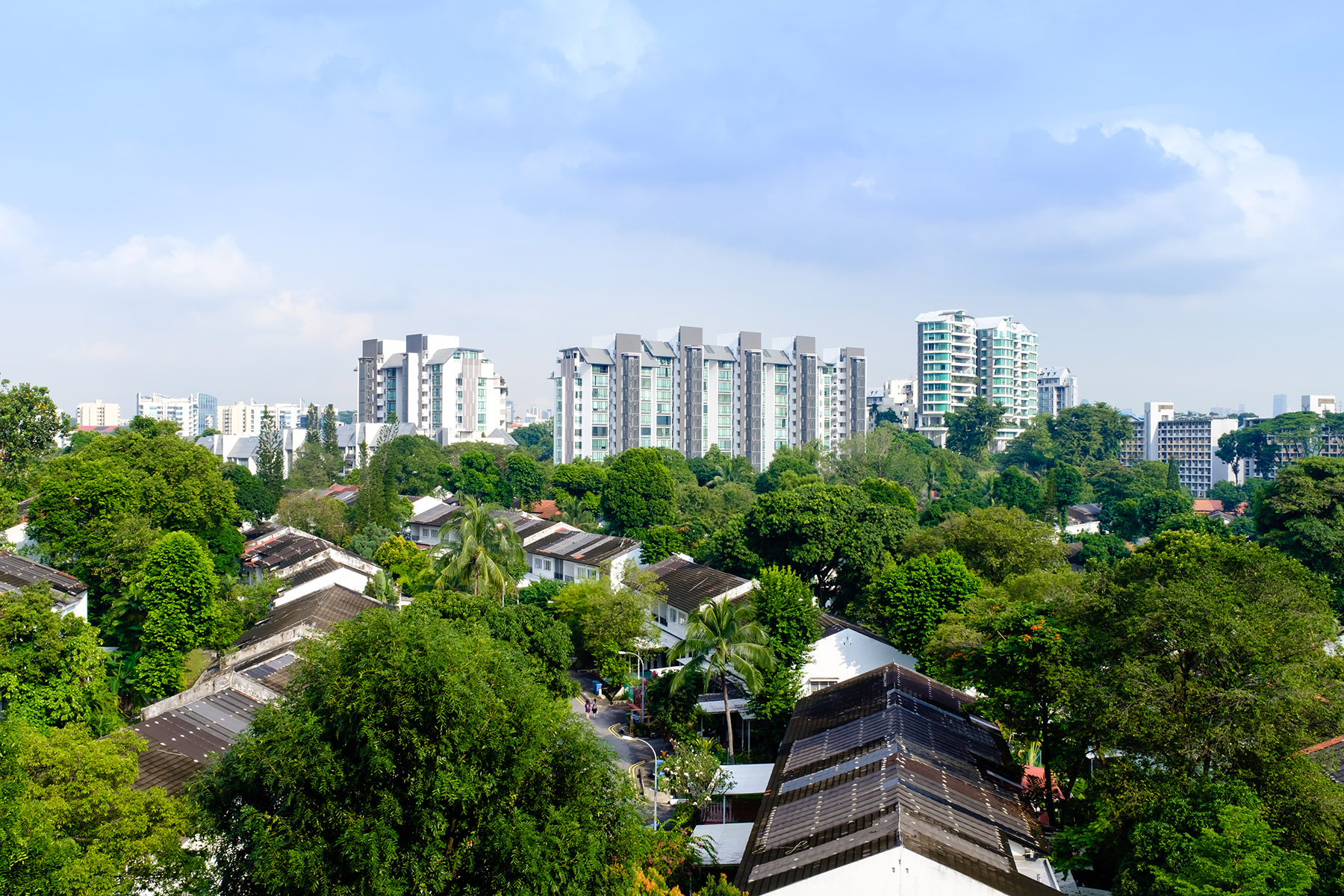
Bear in mind that accommodation is in extraordinarily high demand in the most sought-after areas of Singapore, such as Robertson Quay, River Valley, Holland Village, and Kallang.
The rental process is straightforward once the landlord approves your application via the estate agent.

Local writer and expert
Mark Lazell
Try asking for a two-year contract to lock in the rental rate if the market looks like it’s surging.
You need to send copies of your passport, work contract, and Employment Pass to the agent, and they’ll revert with a draft tenancy agreement. This standard document sets out both tenant and landlord rights. In a competitive market, landlords may not readily include diplomatic clauses, which allow foreign expatriates to terminate their leases early under conditions like job transfer or termination.
Supplying character references or bank statements to a landlord is not standard practice.
Once you and the landlord have signed the tenancy contract and agreed on a moving-in date, you’ll need to pay a deposit. That’s usually one or two months’ rent. Note that in Singapore, the landlord pays the agency letting fee.
In terms of prices, it’s all about location, location, location. Plan to allocate approximately S$3,000 per month to rent a fully furnished one-bedroom condo with access to a pool and gym situated in or around the city center or along the river. Add around S$300 monthly for utilities, trash collection, and high-speed broadband.
A three-bedroom condo in a district like Holland Village or Kallang will be around S$5,000 per month, plus utilities. Land is at a premium in Singapore; therefore, standalone homes with gardens attract sky-high premiums.
Buying
Foreign Singapore property buyers fall into two main categories – wealthy non-resident investors and expats who are permanent residents or plan to stay long-term.
It’s an expensive place for a first-time buyer to get on the housing ladder. You’re looking at S$1 million upwards for a small studio in the central areas.
Unlike Singaporeans, who can access government help via the Housing and Development Board (HDB) to buy more affordable housing, expats must arrange financing through a retail bank. Shop around for the best interest rates and mortgage deals.
6. What’s it like being a woman in Singapore?
The Singapore constitution guarantees equal rights for women. In legal terms, there are no barriers to women holding top political positions, running companies, working as judges, or playing a full role in national life.
Although Singapore has more female CEOs (14%) and CFOs (26%) than their ASEAN counterparts, there is still room for improvement. For example, in 2020, women earned 14.4% less than their male peers, a 4.3% improvement (after adjustments) from 2018. Nevertheless, the country highlighted this discrepancy with a Pay Gap Day in March 2023.
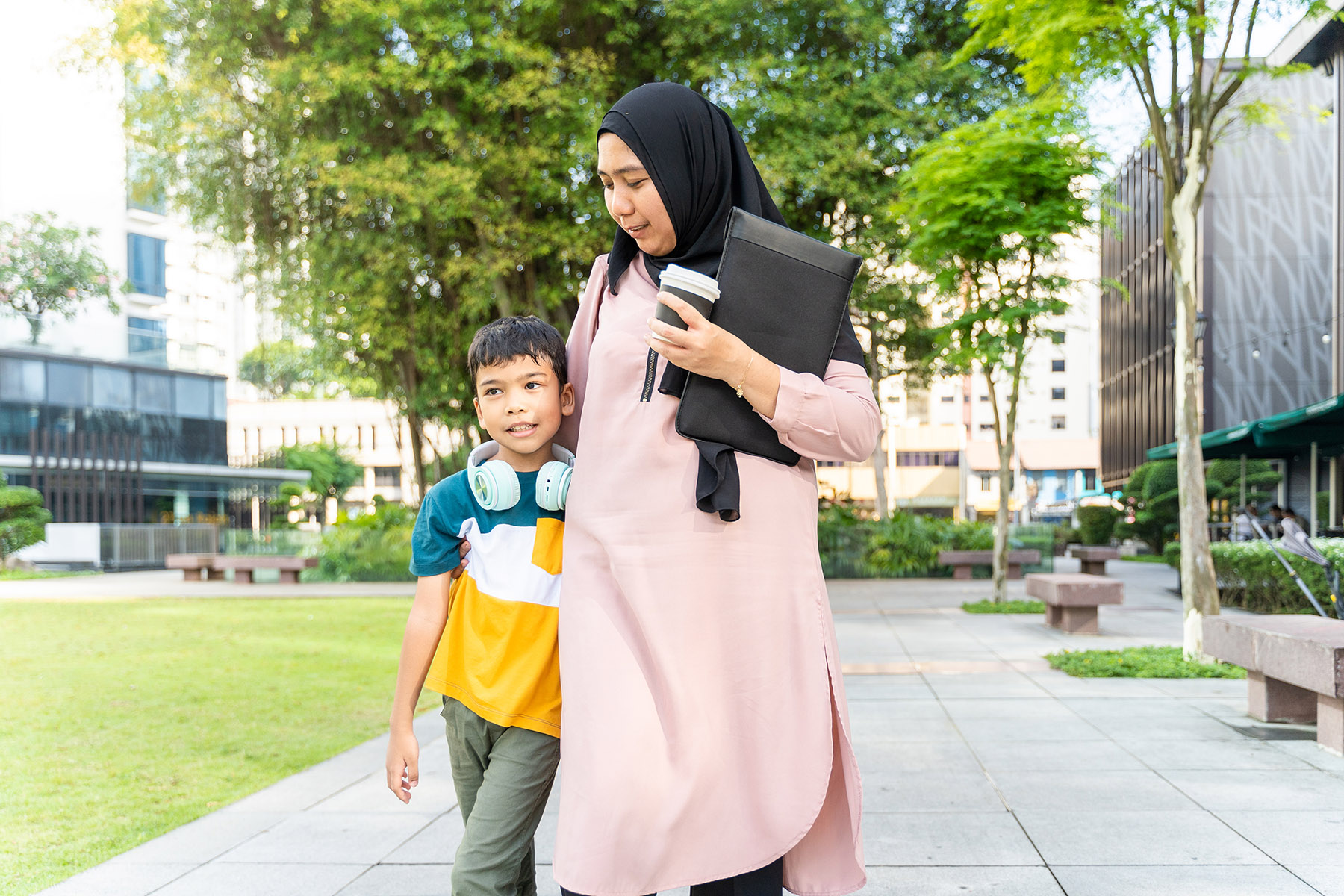
Singapore is inherently safe for women. The incredibly low crime rates include only some incidences of gender-specific crimes against women, for example, sexual assault. As it is a law-abiding and respectful society, casual harassment is also rare.
However, a survey published by the local Association of Women for Action and Research (AWARE) showed that one in 10 women in Singapore experience physical violence by a male. Furthermore, 57% of respondents still hold the patriarchal belief that men are the head of the household.
If you need any support, you can call AWARE at the following numbers:
- Sexual assault: 6779 7137 (Mon–Fri, 10:00–18:00)
- Helpline: 1800 777 5555 (Mon–Fri, 10:00–18:00)
- General inquiries: 6779 7137
Other helplines and emergency numbers include:
- Police: 999
- Ambulance/Fire: 995
- National Anti-Violence Helpline (NAVH): 1800 777 0000 (24/7)
- Big Love Child Protection Specialist Centre: 6445 0400
- HEART @ Fei Yue Child Protection Specialist Centre: 6819 9170
- TRANS Safe Centre: 6449 0762
7. Is Singapore a good place to raise children?
Singapore is renowned for its stability and safety, making it an ideal place for raising children. The country hosts nearly 100 international schools, offering diverse curriculums from the International Baccalaureate (IB) to British, American, German, French, Japanese, and Australian systems. These institutions are equipped with modern facilities and a broad range of extracurricular activities. However, annual tuition fees are expensive; for example, you can pay around S$30,000 to S$50,000 for secondary education.
Healthcare is top-notch and widely accessible, complementing an active lifestyle and access to healthy food. Therefore, Singapore is a healthy place to bring up children. International schools also usually have first-aid clinics with nurses. Most expat families have private health insurance schemes built into work contracts that cover children, too.
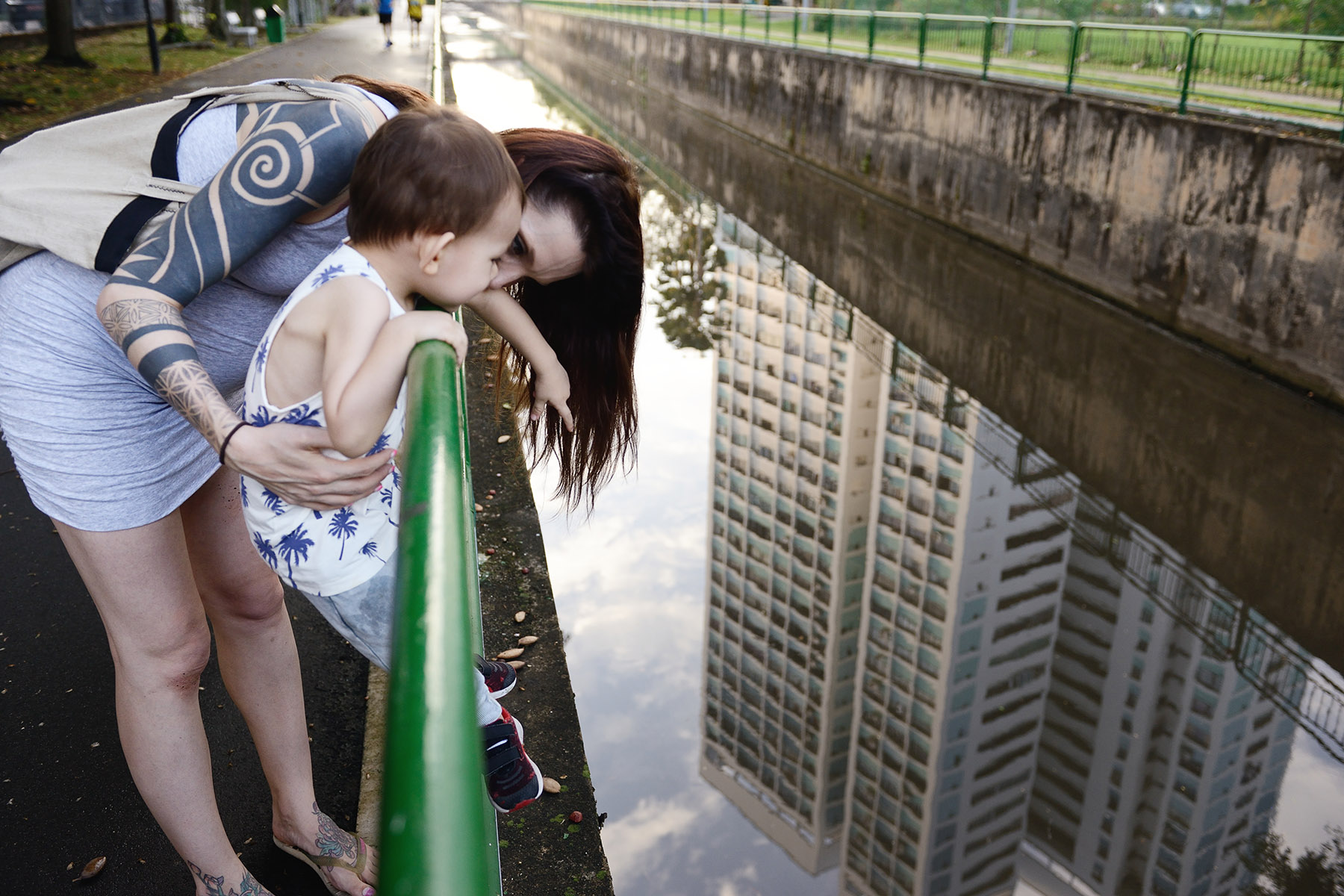
As expats cannot access public childcare facilities or financial assistance, they often employ experienced domestic helpers (amahs) or nannies. Most are from neighboring countries like the Philippines, Indonesia, Thailand, or India. You can contact one of the many recruitment agencies specializing in domestic helpers and nannies. These companies vet candidates, match them with families, and arrange work permits – budget around S$900 for a full-time domestic helper and S$1,000 for a nanny.
Of course, growing up in such a diverse environment offers unique, multicultural experiences. However, it may also pose challenges for expat children to develop a sense of belonging, but this is not an issue unique to growing up in Singapore as a third-culture kid.
8. Does Singapore have a good healthcare system?
Singapore’s healthcare system is efficient, innovative, and technologically advanced, staffed by highly skilled medical professionals. Expats can use public or private health services, but only Singaporeans and permanent residents are eligible for free or subsidized treatment.
Since non-permanent resident expats are responsible for their own medical costs in Singapore, many companies offer health insurance as part of their employment benefits. Other expats choose to take out their own private health insurance from a trusted international provider like:
9. What is the worst about life in Singapore?
For all its advantages, Singapore does have a few downsides.
The small island can sometimes feel somewhat claustrophobic as it only takes 45 minutes to cross the whole country, which is not big enough to offer diverse landscapes. Island fever is real, so many residents try to travel to other countries as often as practical and financially viable.
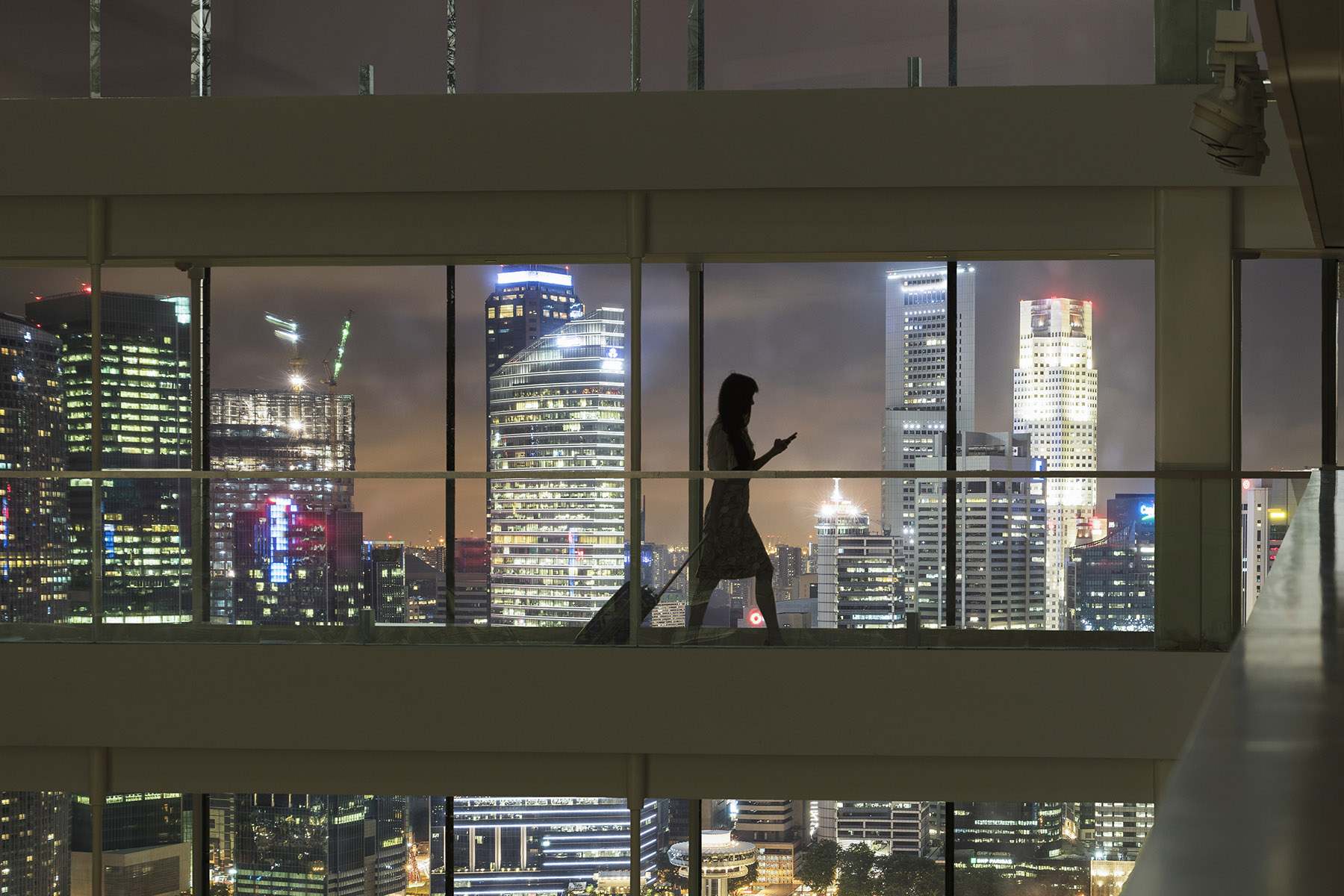
As an expat, you can also feel disconnected from local society. Finding a sense of belonging in Singapore can be tricky, and integrating into the community takes time and effort. Consider volunteering with a neighborhood organization or immerse yourself in local history, activities, and festivals to gain a more nuanced understanding of the unique and diverse Singaporean culture.
Internationals from countries with more press freedom and lively political debates and activism might find Singapore’s public discourse somewhat reserved. The local society tends to approach politics cautiously, which newcomers may perceive as lacking civil engagement. That being said, many expats may only engage politically when it comes to immigration policies and taxes.
Depending on your perspective, Singapore’s weather can be a delight or a dilemma. Daily highs of around 32°C with 90% humidity often feel like perpetually living in a sauna. And forget the joys of seasonal changes; the Lion City sits on the equator, where the climate doesn’t bother with variety.
10. What is the best about Singaporean life?
Paradoxically, while Singapore’s climate exhausts some inhabitants, it’s a joy for others. Life in the tropics means every day is a beach or pool day. Even the rain (which falls frequently) is warm. Just sit under cover and listen to the heavens open. Gaze in awe at the power of Singapore’s thunder and lightning shows. Appreciate the lush greenery, the beautiful tropical flowers, and the colorful birds that dart from tree to tree, even in the city center.
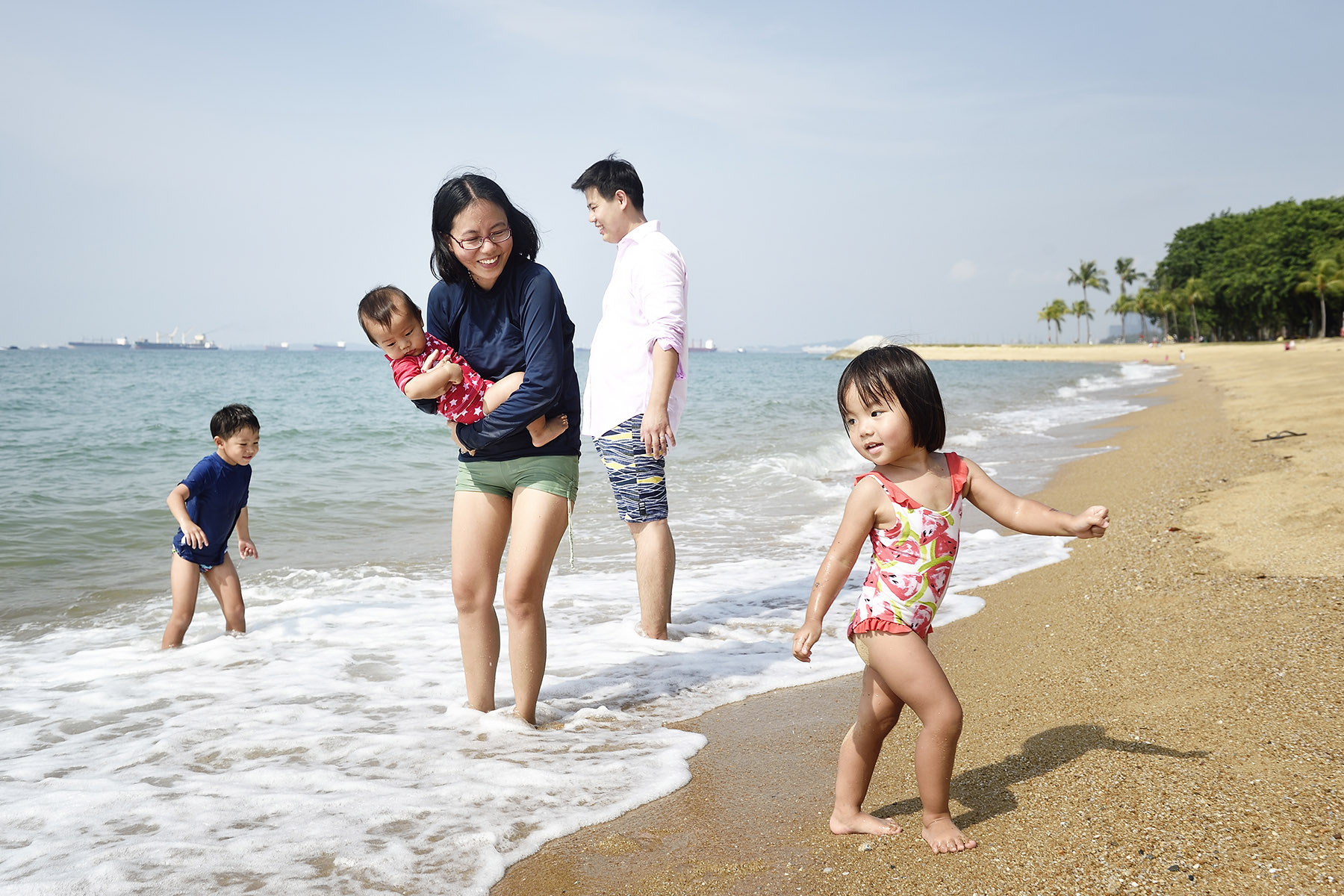
Then there’s Singapore work life. It may be hectic and demanding, but it usually includes an attractive salary with fringe benefits, and you do not pay most of it to income tax.
Another enjoyable aspect of life in Singapore is its international flavor. People from around the world live on this tiny island, a kaleidoscope of cultures and colors.
Everything is clean, works well, and runs on time. The city-state’s public transport network is comprehensive, efficient, and affordable.
Indeed, you can head out any time of the day or night, in any suburb or neighborhood, and you’ll be safe. You cannot put a price on that.
Lastly, you’ve got some of the world’s best holiday destinations right on your doorstep with Phuket (Thailand), Bali, and Western Australia no further than a five-hour flight, or you can explore neighboring Malaysia by train or bus.
